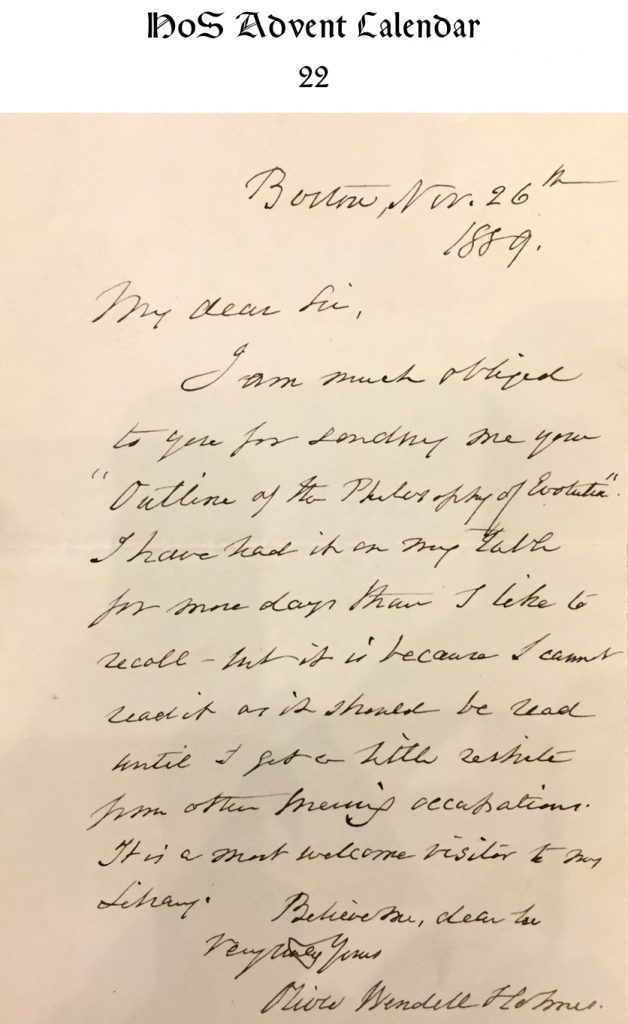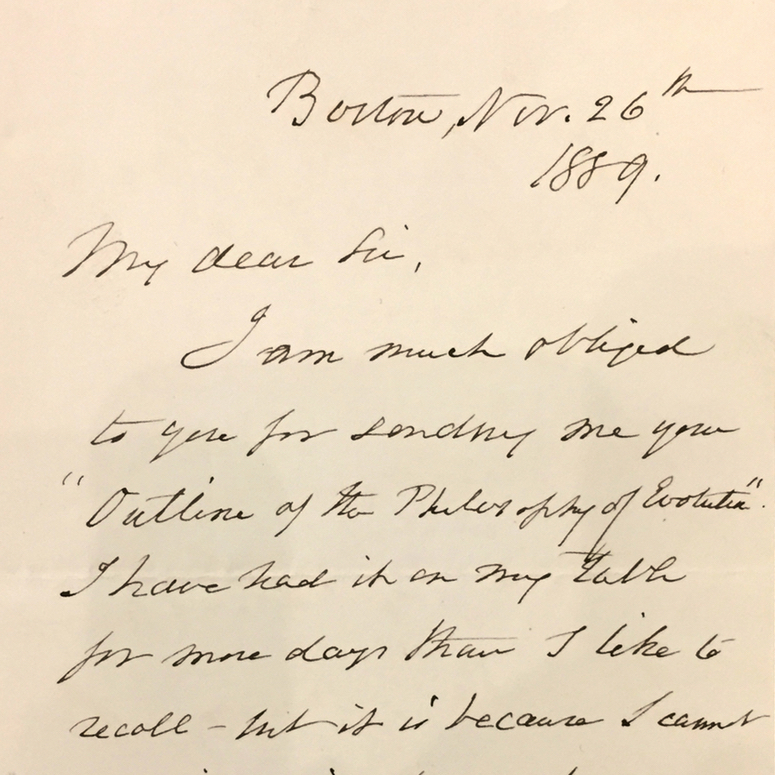
Oliver Wendell Holmes could write a thank-you letter. Here he thanks E. D. Cope for sending him a copy of his latest essay. Holmes regrets that he has not yet found the free time to concentrate on Cope’s essay and so has yet to read it, though he looks forward to doing so.
Boston, Nov. 26th 1889
My dear Sir,
I am much obliged to you for sending me your “Outline of the Philosophy of Evolution”. I have had it on my table for more days than I like to recall—but it is because I cannot read it as it should be read until I get a little respite from other pressing occupations. It is a most welcome visitor to my library.
On October 4, 1889 E. D. Cope read a paper before a meeting of the American Philosophical Society, which was immediately published as “An Outline of the Philosophy of Evolution” in the Proceedings of the American Philosophical Society. In it he ruminated on the question cognition and how it was possible. He promises,
Hitherto the nature of cognition has been chiefly considered in the realist-idealist discussion, but the nature of will is equally involved in it. Free will is in some sense a priori will or unconditioned will. I propose to devote a few pages to this old question, both as to the intellect and the will. My apology for doing so is that our knowledge of evolution is now greater than has been the case hitherto; and also because it appears to me that the attempt to develop a metaphysical system on a basis of Darwinian evolution has been only partially successful. Let us see what results follow the introduction into philosophy of the Lamarckian principle of evolution.[1]
Shortly after delivering his lecture, Cope sent a copy of it to Holmes, prompting Holmes to write his thank you note. Not only is Holmes’s note gracious, it is perfectly timed in that he wrote it before he read Cope’s essay. You should always send thank you notes for books or essays before you read them. In your ignorance of its quality, you can be genuine in your thanks. After reading the essay or book you might find it difficult to thank the person.
-
It is unsurprising that Cope would introduce Lamarckian principles; he was a well-known Neo-Lamarckian. I’ve written about Cope before. ↩
